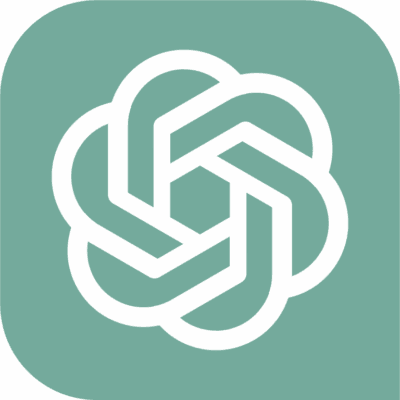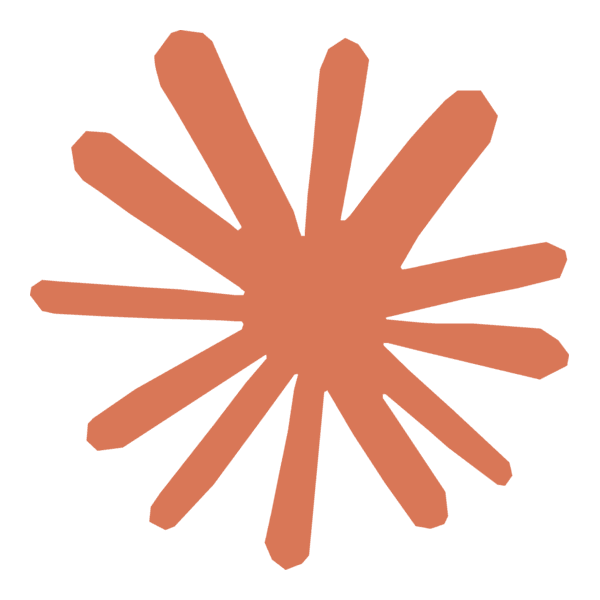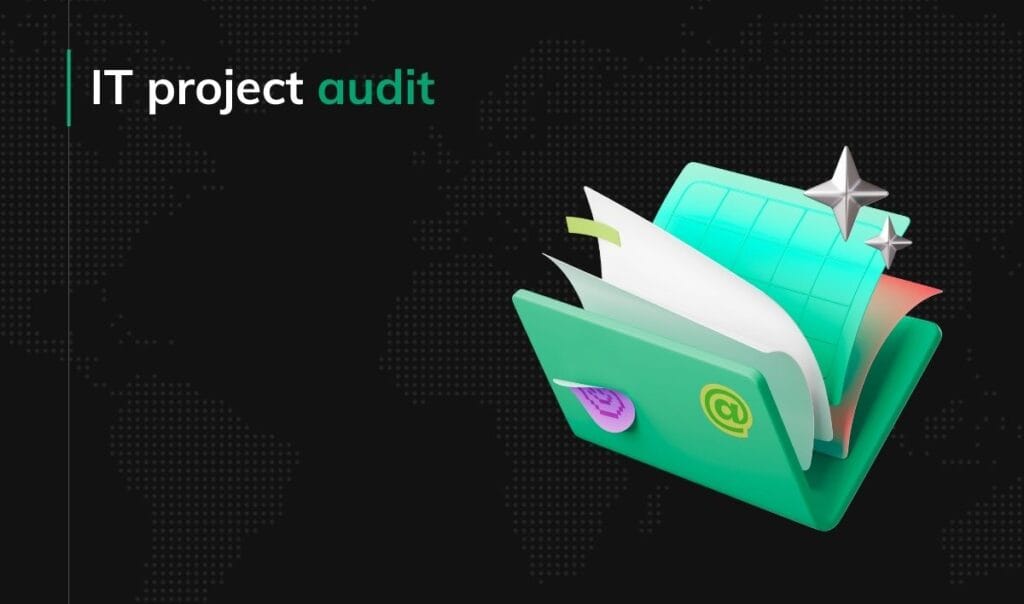Product development vs. software development? The difference is SO IMPORTANT to you.
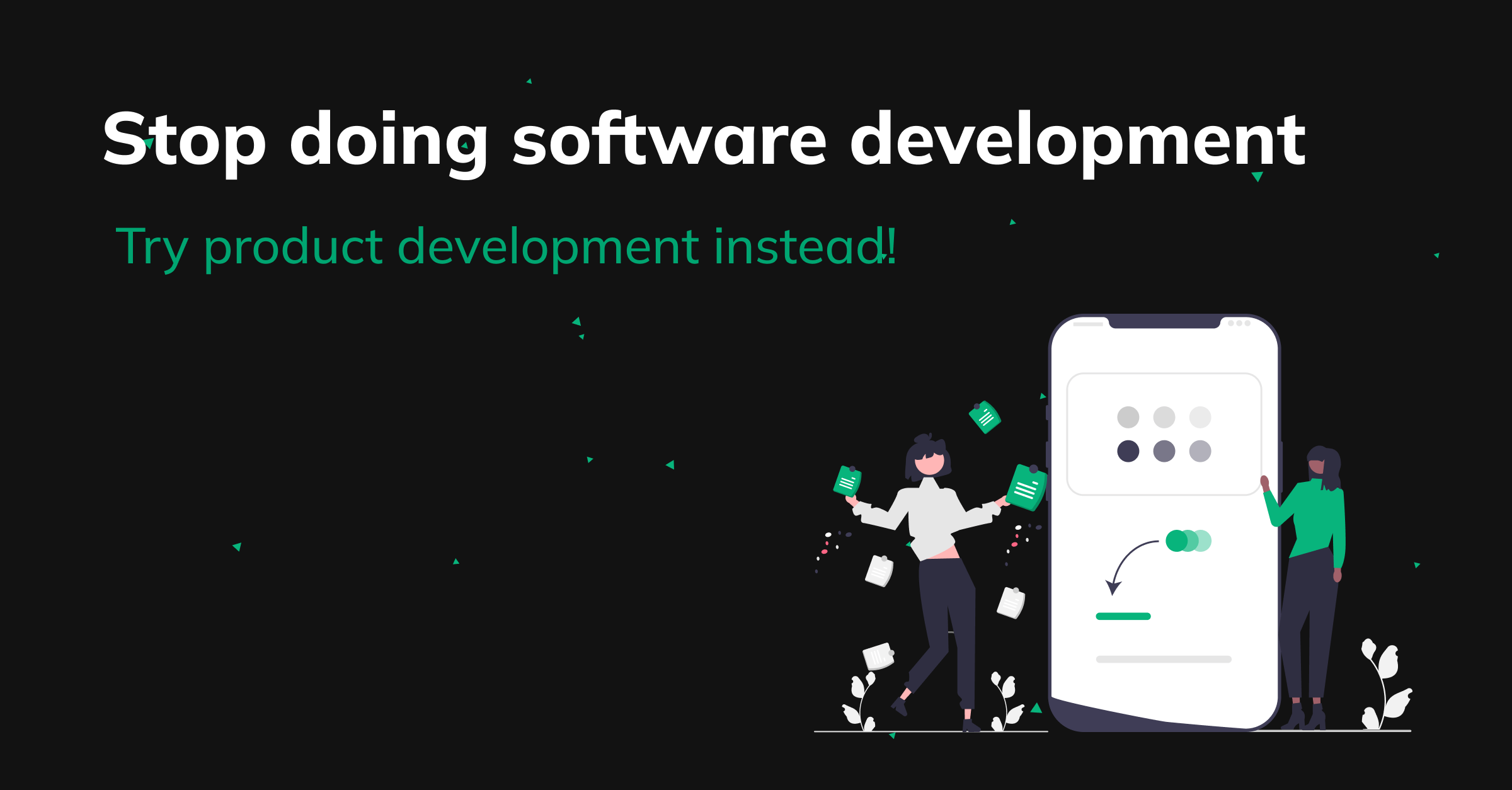
Product development and software development. Although many use these terms interchangeably, they definitely aren’t equal. And the person who definitely should pay closer attention to the terms is… you.
Because from your (a business founder’s or other stakeholder’s) perspective, investing in products that are built to be built (and do nothing more than exist) versus investing in products that generate constant revenue really makes a difference, doesn’t it?
We’re bringing up this concern because we’ve noticed that founders, stakeholders, and managers are getting too caught up in software development alone. As a result, they don’t fully capitalize on the potential advantages of giving more attention to product development rather than just software development.
So, why should you go all in product development? Let’s find out.
PRODUCT DEVELOPMENT SERVICES
What is software development?
Software development is a subset of product development. It involves the more “technical” side of building a digital product and, simply put, revolves around writing code, maintaining & testing it.
What software development is NOT
Software development is an integral part of product development. However, it lacks several crucial elements for building money-making products.
- Market research & validation. They absolute key thing to do before even a single line of code is written is research. And the problem with software development is that it lacks conducting market analysis, identifying target audiences, and validating the product concept through user research and feedback. Without these elements, you might end up with a product that fails to resonate with the intended market.
- User-centric design. Software development ≠ emphasis on user experience. Neglecting UX design can lead to products that are difficult to use, frustrating, or don’t meet user expectations.
- Business strategy and revenue generation. In contrast to product development, software development does not incorporate a comprehensive business and revenue generation strategy.
- Cross-functional collaboration. Software development is just about coding, so there’s no collaboration among cross-functional teams, including software developers, UX designers, product managers, marketers, and sales professionals. This, in turn, could lead to a siloed approach and a potential misalignment between the software and other aspects of the product.
- Lifecycle management & iterative improvements. Product development encompasses the entire product development lifecycle, including activities after the launch, like monitoring, gathering feedback, and making improvements based on user input, while software development doesn’t. This limitation might stop your product from evolving and meeting the needs of changing markets.
What is product development?
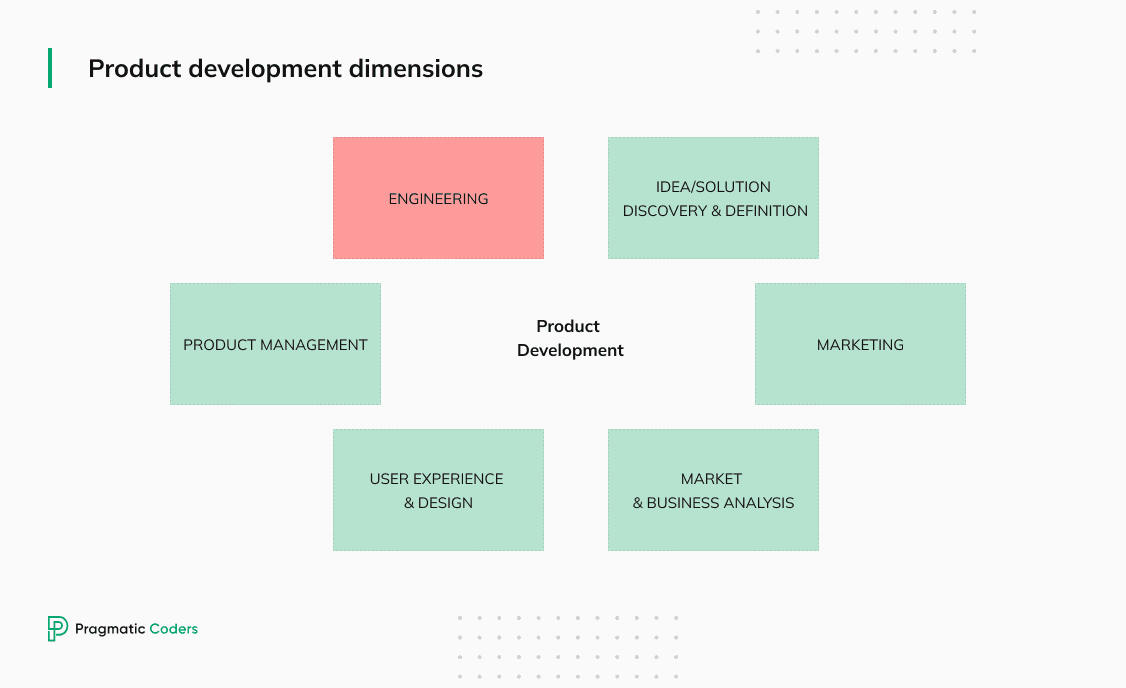
On the other hand, product development is a much broader term.
Product development is the process of bringing a specific product to market. It includes all activities of creating a new product, from idea generation to product launch.
Let’s discuss it from three points of view:
- product development process,
- product development dimensions, and
- product development roles.
Product development process
The product development process usually comprises research, ideation, design, testing, software development, and launch.
However, don’t get attached to it – the details vary from company to company, and in most cases, the order is not linear.
The process is especially unstable in the unpredictable startup environment (*pivots*) when things change from day to day, and you need to rethink your startup idea and go back to stage one.
(BTW, we’ve explored the two initial phases (research & ideation) of building digital products in our hit ebook How to start a startup. Check it out 👇. We’ve also developed a Market Research Tool that will help you immensely with the first phase.)
Product development dimensions
In addition to the process phases, product development has dimensions, as shown in the graphic above.
Product development is not limited to product management or software development (engineering). When bringing a product to the market, you first need to generate and review your product ideas, considering the project’s business side (how will it make money?). Apart from simply functioning, your product must work intuitively (UX). And you can’t forget about proper marketing so that people can even know it exists and perceive it in the right way.
Roles and responsibilities
Who takes care of the process and each subset of product development is a matter of agreement. As an example, here’s briefly how we approach it at Pragmatic Coders:
Product Managers* are responsible for:
- overview of the entire product development process & business logic behind the project,
- market & business analysis,
- development planning (product roadmaps).
Of course, this short listicle doesn’t do justice to all the responsibilities of Product Managers. Check this article for more details 👉 What is a Product Owner? Real insight from ex-dev, now Scrum Master and Product Owner >>
*You might be wondering why we’re redirecting you to an article about Product Owners for more detail about Product Managers. That’s because these are the same roles. The only difference is that a Product Owner is a Product Manager that works specifically in Scrum.
Hire the best Product Managers for your endeavor. Check our Product Management Services now.
UX specialists:
- Focus on solving user’ problems – that’s their top priority,
- Conduct user research to find a problem worth addressing,
- Carry out competitor analysis to find market gaps,
- Create and test information architecture for a product to ensure it’s logical and easy to navigate through,
- Design product wireframes, prototypes, and mockups,
- Collaborate with the marketing department to create a content strategy,
- Test prototypes with users and collect feedback,
- Craft designs that look visually appealing and are accessible to all users.
Discover our software product design services here.
Developers:
- Are responsible for software development & testing,
- Provide infrastructure (DevOps & SRE) services.
What’s the difference between product development and software development?
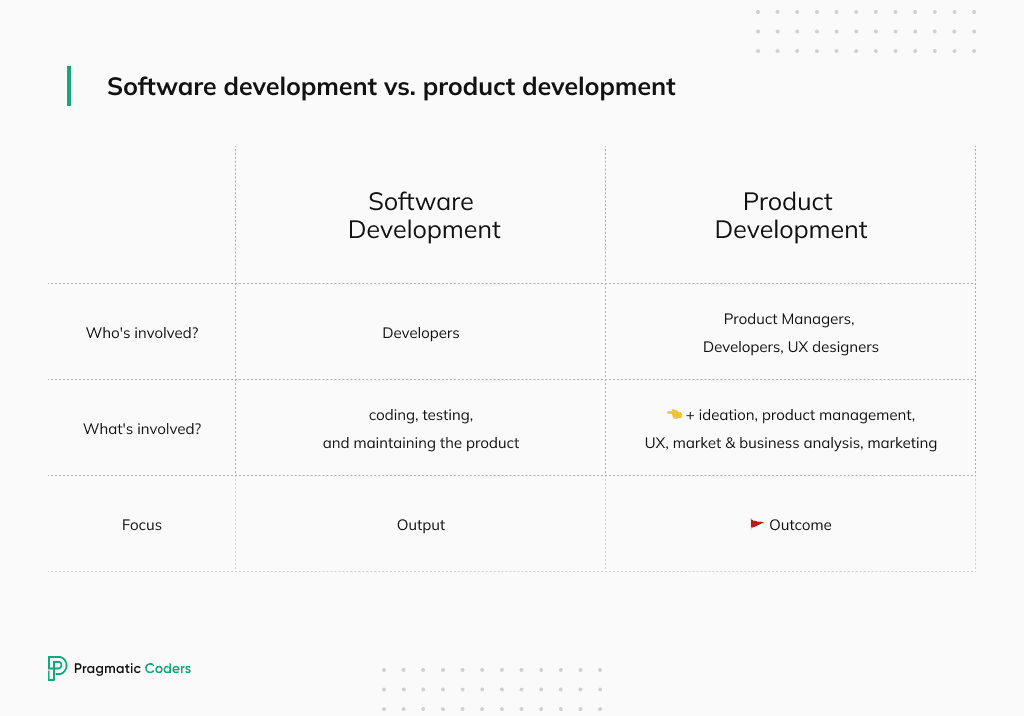
- Difference one: hierarchy
Product development refers to the entire process of creating a digital product. In contrast, software development, as a subset of product development, specifically focuses on creating software.
- Difference two: leading role
Not only does product development involve more roles than software development itself, but the primary responsibilities shift from developers to product managers.
- 🚩 Difference three: focus
Okay, the first two points were quite apparent if you’ve read everything above them. But here’s something less self-evident.
The crucial difference between product development and software development lies in their focus. While product development focuses on outcomes (changing people’s behavior by providing them with a solution (your product) to a problem they encounter), software development concentrates on delivering outputs (developing specific pieces of software, e.g., your app’s features).
It may not seem like a big deal, but being output-oriented vs. outcome-oriented makes a difference in terms of business and generating value. Look at Tom’s story to see why. 👇
POV: You’ve hired developers instead of a product development company
Imagine this situation.
Tom has a business idea and wants to build a digital product – a mobile app. He’s not a one-man band, and his average day lasts 24, not 72 hours, so he understands he will definitely need other people to help him with it. He decides to outsource the work.
He’s researching the people who will write code for his project. Tom inherited $300,000 from his late grandma, so the young founder doesn’t worry about the financial aspect – he wants his product out ASAP.
Now, there are two types of software development companies. The first only do software, and the second call themselves a “software development company” but does product development, in fact.
Tom decides he won’t pay extra for product managers or UX designers. He will just invest in developers to create the product. Ultimately, he knows what product he wants to build and what features it needs to have, so all he really needs is the egineers’ work.
Once the development’s over, Tom’s app lands in the App Store and Google Play. A few months pass by… and nothing happens. There are a few dozen of downloads, but in general, things are pretty bad. Nobody seems interested in his product. Why?
It might be because there’s no market need for Tom’s product. Maybe it was mistimed, or the product is simply… poor.
Whatever the reason, the chance of them occurring could have been drastically reduced had Tom partnered with a PRODUCT development company.
With UX research done and his ideas reviewed by business-oriented product managers, he could have seen his initial concept wasn’t that amazing.
Maybe it would turn out his idea was one that is interesting but doesn’t serve the market. He would’ve saved his grandma’s life savings, that’s for sure.
Realising you may already have poured thousands into code that isn’t resonating with the market? Our project rescue team can step in, audit the product, refocus the roadmap, and transform stalled software into a revenue-generating solution.
The moral of this story is as follows: don’t pay for software development just for the sake of it. Invest in research and product management, and be sure there’s a market for your product.
Don’t run fast in the wrong direction. Why Product Development Matters Even More in the Age of AI
Let’s cut to the chase: AI is transforming how we build software. At Pragmatic Coders, 83% of our developers use AI coding tools that generate about 100 suggestions daily. This helps us deliver products up to 45% faster than traditional methods.
But here’s the thing – faster code writing doesn’t equal better products. In fact, it makes product development expertise more crucial than ever. Here’s why:
- AI can code, but can’t think business. AI will crank out code all day, but it won’t tell you if your product idea is worth building. Smart product development – understanding market needs, user problems, and business potential – that’s still purely human territory.
- Building the wrong thing, just faster. With AI, you can build the wrong product more efficiently than ever. Great news, right? Not really. You need experienced product people to make sure you’re solving real problems, not just writing fancy code.
- Strategic integration of AI. At Pragmatic Coders, we’ve learned that effectively using AI in development isn’t just about implementing the technology – it’s about making smart decisions about where and how to use it to create actual business value.
- Standing out in the market. When everyone has access to AI coding tools, your competitive edge comes from building the right thing, not just building things right. That’s where solid product development makes all the difference.
Pragmatically speaking, in 2025, you don’t just need developers who can work with AI – you need a team that combines AI-enhanced development with sharp business acumen and user-focused design. Otherwise, you risk building a perfectly coded product… that nobody wants to use.
FAQ. Product vs process in software engineering (and other questions)
Here are a few questions you might be asking yourself.
Why is hiring an all-in-one team better than multi-sourcing?
Okay, so we’re clear that building digital products is more than just software development, and you want to invest in UX, product management, etc.
You might be now wondering whether to hire one company to take care of everything product-related or to multi-source various elements to many teams. The second option is tempting as it may appear to offer flexibility and cost-saving opportunities. However, in the long run, it will only generate more problems.
Here are two main reasons why opting for an all-in-one team will be a better choice:
- Seamless collaboration. Being close to each other helps make decisions, solve problems, and give feedback faster. On the other hand, multi-sourcing usually means working with remote teams in different time zones, which can cause delays and make coordination harder.
- Holistic understanding & a shared vision. An all-in-one team possesses a holistic understanding of the entire product development process. This helps keep the project on track with a clear vision and smooth execution. On the flip side, depending on many outsourcing partners may result in fragmented expertise, leading to a lack of synergy among different project components.
Product Managers vs. Project Managers?
The Product Manager sets the “what” and vision for a product, while the Project Manager ensures the “how” gets done on time and within budget.
Software developer vs. product engineer?
Here, the difference is a bit trickier.
While there is overlap between the two roles, especially in smaller companies or teams where individuals may wear multiple hats, the key differences all come down to the focus: technical development (Software Developer) versus a broader involvement in product strategy, user experience, and market fit (Product Engineer).
You could say a Product Engineer is a one-man band, a mix of a software developer, UX specialist, and Product Manager.
Product vs. application development?
Product development focuses on the overall product lifecycle, while application development focuses on creating specific software applications.
What’s the difference between software and product development teams?
Software development team: consists of developers. Product development team: consists of developers, product managers, and UX specialists.
Product vs. software?
The difference between software and a product lies in their purpose. Software is the technical foundation of a product, while the product is more – it’s the tangible offering that solves a problem or meets a need for users.
What’s the difference between the software product and software process?
The main difference between the software product and software process is that the software product is the end result, the tangible piece of software that users interact with, while the software process is the roadmap, the set of steps or activities that guide the creation of that software product.
What’s the difference between product and software development?
Lastly, let’s explain the difference between software and product development for the last time. Product development focuses on creating products that address market needs and generate value, while software development focuses on delivering specific features and functionality.
Software vs. product development. Summary
Summing up: if you’re looking for software providers to build your product with, and you don’t want to risk ending up with a product that doesn’t sell, be sure they are a product, not a software development company.
Here’s some further reading for you:
- What is the Product Development Framework, and why do you need it? >>
- How To Create a Product Development Strategy – Step by Step >>
- New Product Development Mistakes You Should Avoid >>



